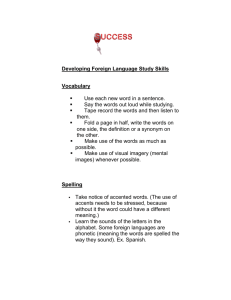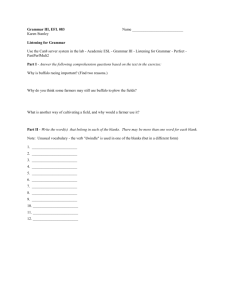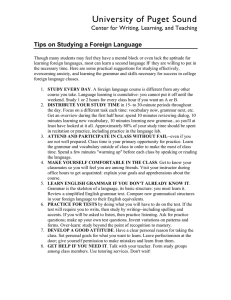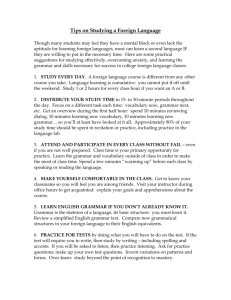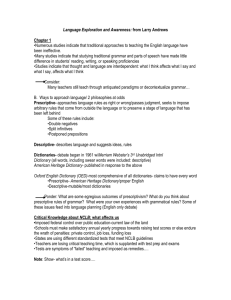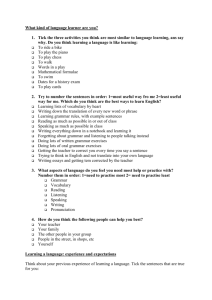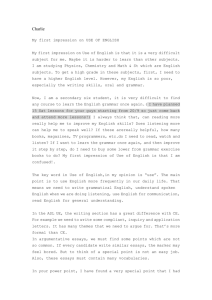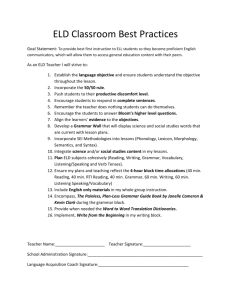Foreign Language Study Skills
advertisement
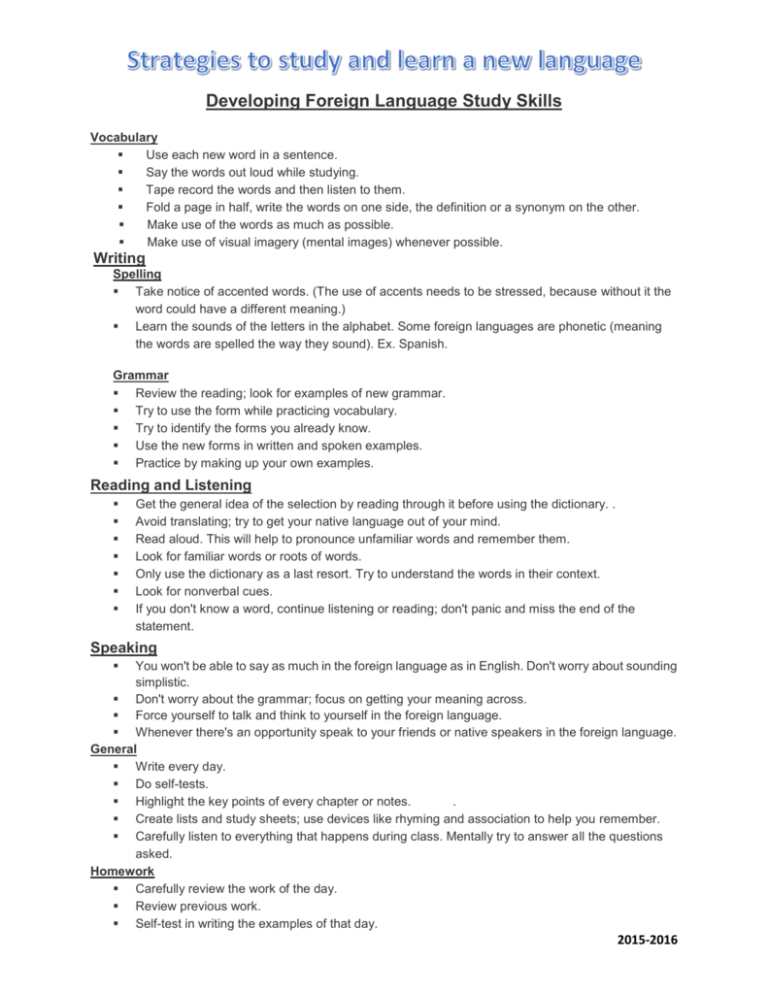
Developing Foreign Language Study Skills Vocabulary Use each new word in a sentence. Say the words out loud while studying. Tape record the words and then listen to them. Fold a page in half, write the words on one side, the definition or a synonym on the other. Make use of the words as much as possible. Make use of visual imagery (mental images) whenever possible. Writing Spelling Take notice of accented words. (The use of accents needs to be stressed, because without it the word could have a different meaning.) Learn the sounds of the letters in the alphabet. Some foreign languages are phonetic (meaning the words are spelled the way they sound). Ex. Spanish. Grammar Review the reading; look for examples of new grammar. Try to use the form while practicing vocabulary. Try to identify the forms you already know. Use the new forms in written and spoken examples. Practice by making up your own examples. Reading and Listening Get the general idea of the selection by reading through it before using the dictionary. . Avoid translating; try to get your native language out of your mind. Read aloud. This will help to pronounce unfamiliar words and remember them. Look for familiar words or roots of words. Only use the dictionary as a last resort. Try to understand the words in their context. Look for nonverbal cues. If you don't know a word, continue listening or reading; don't panic and miss the end of the statement. Speaking You won't be able to say as much in the foreign language as in English. Don't worry about sounding simplistic. Don't worry about the grammar; focus on getting your meaning across. Force yourself to talk and think to yourself in the foreign language. Whenever there's an opportunity speak to your friends or native speakers in the foreign language. General Write every day. Do self-tests. Highlight the key points of every chapter or notes. . Create lists and study sheets; use devices like rhyming and association to help you remember. Carefully listen to everything that happens during class. Mentally try to answer all the questions asked. Homework Carefully review the work of the day. Review previous work. Self-test in writing the examples of that day. 2015-2016

